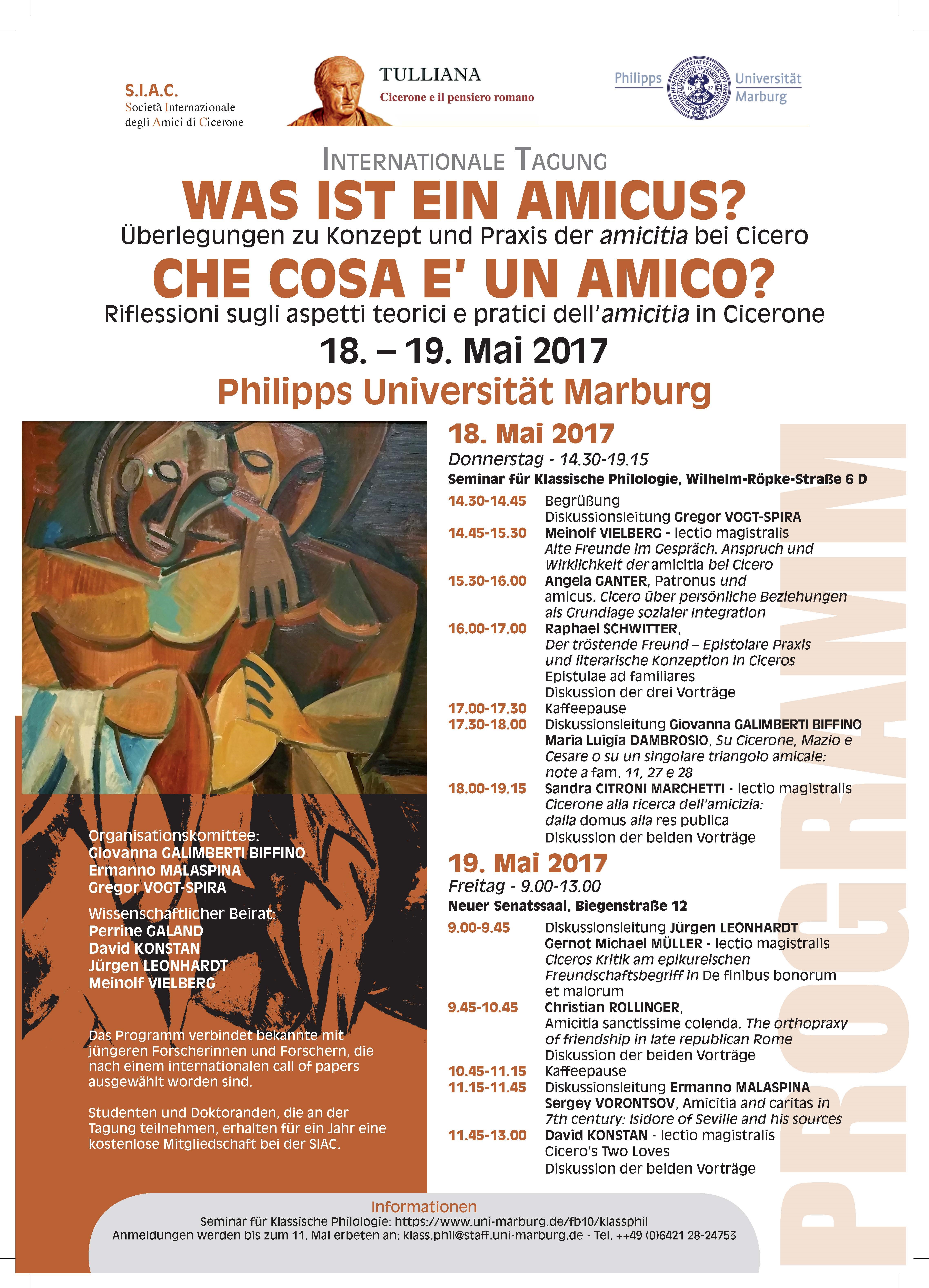Patronus und amicus. Ciceros Tränen als Grundlage sozialer Integration - Patronus and Amicus: Cicero's Tears as the Cornerstone of Social Integration
DOI :
https://doi.org/10.13135/2532-5353/2503Résumé
Schlüsselwörter: Cicero; patronus; orator; emotions.
Zusammenfassung: Warum überzeugten Tränen vor Gericht, obwohl jeder wusste, dass es sich dabei um eine Strategie handelte? Der Beitrag nimmt Ciceros Pro Plancio als Ausgangspunkt, um dessen Habitus als patronus zu diskutieren. Cicero betonte immer wieder, wie eng er mit seinen Klienten und Freunden verbunden sei. Bei seinen Auftritten bekannte er sich zum allgemein geteilten Ethos, das bei Patron-Klient-Verhältnissen und Freundschaften wahre Hingabe verlangte. Da amicitia und Patronage auf geteilten Werten beruhten, die letztlich auf das Ethos der republikanischen Elite verwiesen, musste jeder, der sich diesen Werten verpflichtet fühlte, Ciceros Argumentation folgen. Zumindest war es das, was seine rhetorischen Fähigkeiten auf rationaler und emotionaler Ebene forderten. Aber wie verhält es sich mit der Annahme, dass Redner selbst emotional bewegt sein mussten, wenn sie ihr Publikum überzeugen wollten? Der Beitrag argumentiert, dass Ciceros lebenslanger Einsatz als patronus ihn letztlich selbst glauben ließ, dass er der emotional aufgewühlte, hingebungsvolle patronus war, der er zu sein vorgab und der er wirklich war, wenn er vor Gericht trat.
Abstract: Why did tears in Roman courts convince though everybody knew them to be a strategy? By departing from the case of Pro Plancio, the paper discusses Cicero’s habits as a patronus. Cicero continued stressing his close personal links to his clients and friends. In his performances, he subscribed to the shared ethos of patronage and friendship demanding true dedication. As amicitia, and patronage, were rooted in shared values that ultimately referred to the ethos of the republican elite, everybody addicted to these values also had to follow Cicero’s argumentation. At least this is what his rhetorical skills demanded on a rational, and an emotional, level. But what about the assumption that orators had to be emotionally moved themselves when wanting to convince their audience? The paper argues that Cicero s lifelong acting as a patronus ultimately made himself believe that he indeed was the emotionally moved, truly dedicated patronus he pretended to be, and he really was when performing in court.
Téléchargements
Téléchargements
Publiée
Comment citer
Numéro
Rubrique
Licence
Les auteurs qui publient dans cette revue acceptent les termes suivants :
- Les auteurs conservent leur propriété intellectuelle sur le texte soumis et accordent à la revue le droit de première publication, l'ouvrage étant alors disponible simultanément sous Licence d’attribution Creative Commons – qui permet le partage de l’œuvre tout en en reconnaissant la paternité intellectuelle – et la publication initiale dans cette revue.
- Les auteurs peuvent conclure des ententes contractuelles supplémentaires pour la diffusion non exclusive de la version imprimée de l'ouvrage par la revue (par exemple, le dépôt institutionnel ou la publication dans une monographie), à condition d’indiquer une mention reconnaissant la publication initiale du texte dans cette revue.


 Ciceroniana On Line est reconnue par l'ANVUR (Agence nationale d'évaluation du système universitaire et de la recherche) comme revue de classe A pour les sciences de l'Antiquité, la philologie, la littérature et l'histoire de l'art (
Ciceroniana On Line est reconnue par l'ANVUR (Agence nationale d'évaluation du système universitaire et de la recherche) comme revue de classe A pour les sciences de l'Antiquité, la philologie, la littérature et l'histoire de l'art ( Le journal a été approuvé pour inclusion dans DOAJ. La liste des publications DOAJ est disponible à l'adresse suivante:
Le journal a été approuvé pour inclusion dans DOAJ. La liste des publications DOAJ est disponible à l'adresse suivante: 
 La revue est indexée dans
La revue est indexée dans  La revue est incluse dans ERIH PLUS. La liste des revues d'ERIH PLUS est disponible à l'adresse suivante:
La revue est incluse dans ERIH PLUS. La liste des revues d'ERIH PLUS est disponible à l'adresse suivante: 
